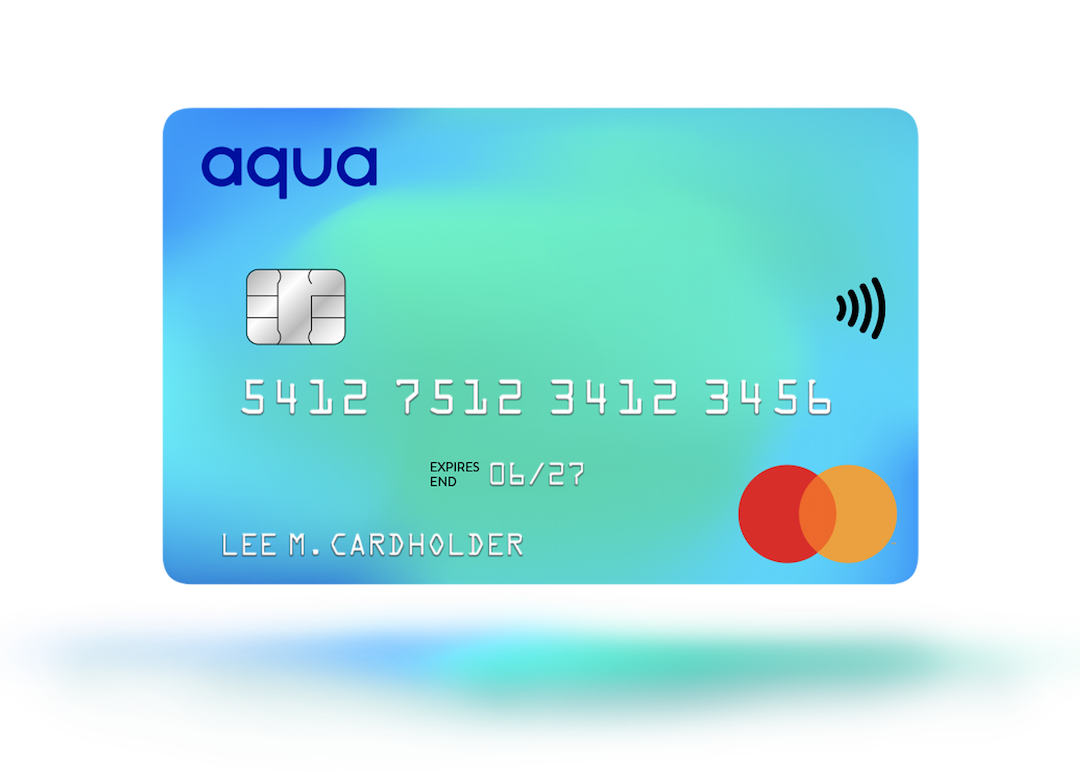In this article
Advantages of using a credit card
From spreading costs to building credit history, learn the benefits of credit cards when used responsibly.

Finances can be worrying, from everyday spending to larger purchases and daily budgeting. Credit cards can help support in all these areas, with the most important benefit being that they could help cardholders build a healthy credit history and improve their credit score. In this piece, we’ll discuss the benefits of having a credit card, as well as what to look out for when using one. Let’s dive in.
Why are credit cards important?
A credit card is a payment card issued by an institution (often a bank or credit lender), that allows cardholders to borrow money for payment of goods and services. Credit cardholders are expected to pay back the borrowed money, sometimes with interest and other additional fees, over time or in full by the due date. For more in-depth details on this, you can head over to our article on how credit cards work.
There are different types of credit cards including secured credit card and rewards credit card, depending on your needs. Having a good credit score will help you qualify for mortgages, phone contracts, get access to low interest rates on insurance and credit cards, and utility services - it can even give you a better chance of getting a job.
What are the advantages of having a credit card?
As mentioned earlier, credit cards have many advantages. Below are some of the top reasons to have a credit card:
1. Spread the costs
If you make a big purchase with a credit card, you'll have the option of paying back over several monthly installments. This can help you ease cashflow from month to month.
2. Build credit history
Responsible credit card use is reflected in your credit report. When you have a track record of making timely payments and keeping your credit card balance low, you could build your credit history and improve your credit score over time. Our Aqua Classic card was designed especially as a credit card for building credit to support with this goal.
Representative 34.9% APR (variable) for Aqua Classic
3. Purchase protection
Many purchases you make on your credit card which cost over £100 and up to £30,000 will be protected under Section 75 of the Consumer Credit Act if something goes wrong. For example, if the product you purchased is not as described or it gets lost in the post, and the retailer does not provide a replacement, you may be able to claim your money back from the credit card provider instead.
4. Earn rewards
Some credit cards offer rewards to customers. These rewards include points, airline miles, and travel rewards. You may get cash back on eligible purchases, which could be anywhere from 1-6% of your purchase total, but usually around 1%.
To get the best rewards, find a rewards program that fits your spending habits or partners with a retailer you use.
5. Balance transfer
Many credit card providers allow you to move debts like monthly instalment payments and car loans to a balance transfer credit card with a lower interest rate and better benefits. This helps you consolidate debt and save money in the long run.
6. Fraud protection
The Consumer Credit Act prohibits credit card providers from holding you liable for fraudulent transactions made on your card if you report the theft or loss of the card on time.
If our card is stolen and a fraudulent transaction is made before you report the theft of your card, the maximum liability is £50. But if you report the theft before the thief makes a purchase or if your credit card provider has a zero-liability fraud policy, you won’t lose any money.
7. Free credit score information
Some credit card providers give you access to your credit score for free.
Monitoring your credit score will give you important information about your spending habits and help you know exactly what credit mistakes you made in the past so that you can correct them and improve your credit score.
What to look out for when using a credit card
Despite these benefits of using a credit card, there are still a few things to look out for. Here are some of them:
1. Missing or late payments
Missing payments or making late payments can have a negative effect on your credit history and credit score. Your credit card provider might also charge you with above standard rates if the money is not paid in full by the due date.
To ensure making timely payments, set up a direct debit, email notifications or calendar reminders.
2. Only making minimum payments
To maintain your credit score, you must always pay at least the minimum payments. But it's not advisable to only pay the minimum because it can cause you to accrue debt and needless interest charges. It can also add months or even years to the normal time it will take you to pay off your debt. It’s always best to, if you can afford it, pay off the statement balance in full.
Before you make big purchases, have a payment plan in place to ensure that you make consistent and timely payments, which will help you build your credit history.
3. Withdrawing cash
Withdrawing cash from an ATM using your credit card is not encouraged because it could incur a fee.
What's more, interest starts to accrue on the cash you withdraw immediately. Unlike regular purchases, there's no grace period for cash withdrawals.
Instead of using credit cards to withdraw money, open a debit card account. allow you to withdraw money with minimal fees. If you need cash, another option is a ‘money transfer’, where you transfer a portion of your credit card limit into your current account. There is usually a fee associated with doing this. However, it’s better than withdrawing from an ATM and potentially damaging your credit score.
4. Maxing out your credit card
Using most (or all) of your available credit limit is not a good idea.
The amount of credit you use directly influences your utilisation rate. Using too much credit will increase your credit utilisation rate, which could negatively impact your credit score. By increasing your repayments, you’ll decrease your utilisation at a faster rate, which could help your credit score.
If you realize that you frequently spend close to your credit limit each month and you can pay off your bill easily, then contact your credit card provider and request an increase to your credit limit if you’re eligible.
Learn how to manage your money effectively so that you won’t end up using too much of your credit limit too often.
5. Applying for new credit cards too often
Each time you apply for a new credit card, a ’hard search’ is recorded in your credit report. The more credit card applications you have in a short period of time, the riskier you appear to lenders.
Only apply for credit cards when you need them. Ideally, you should not apply more than once every six months.
You can also use eligibility checks which allow you to check whether you qualify for a new credit card without hurting your credit score.
It can be stressful to keep track of your credit score by yourself. Aqua card now comes with Aqua Coach to help you build better credit by keeping an eye on your credit score with some useful tips as well. Aqua Coach is found in the More menu of your Aqua App to provide you with access to your credit score information (powered by TransUnion), as well as credit management tools.
Are credit cards worth it?
Now that you know why credit cards are important and what to look out for when using credit cards, it’s safe to say that credit cards are worth it if you use them responsibly.
If you can make payments on time and keep your credit card balance low, you might be able to build your credit history, earn rewards, and be protected from the threat of identity theft or anything that goes wrong with your purchases.
If you have bad credit and you want to increase your credit score, check out Aqua Classic, our most popular credit card designed to help you rebuild your credit score and clear your balance faster when managed responsibly.
Representative 34.9% APR (variable) for Aqua Classic
Failure to make payments on time or to stay within your credit limit means that you will pay additional charges and may make obtaining credit in the future more expensive and difficult.
Contributors

Vanessa Stewart
Vanessa is an editor at Aqua.

Victoria Smith
Victoria is an editor at Aqua.
You might also like
Slide 1 of 3
What is a credit card and how do they work? -...
Discover the basics of credit cards, how to use them, and the benefits of using credit cards in our comprehensive g...
Hayley Bevan

Credit card vs debit card - what's the differ...
Understand the key differences of credit vs debit and learn which is best suited for your needs.
Vanessa Stewart

How to get a credit card with bad credit
Learn how to choose and apply for a credit card when you have bad credit.
Victoria Smith
The smart way to build better credit
Aqua is the credit card that gives you the power to improve your credit score
